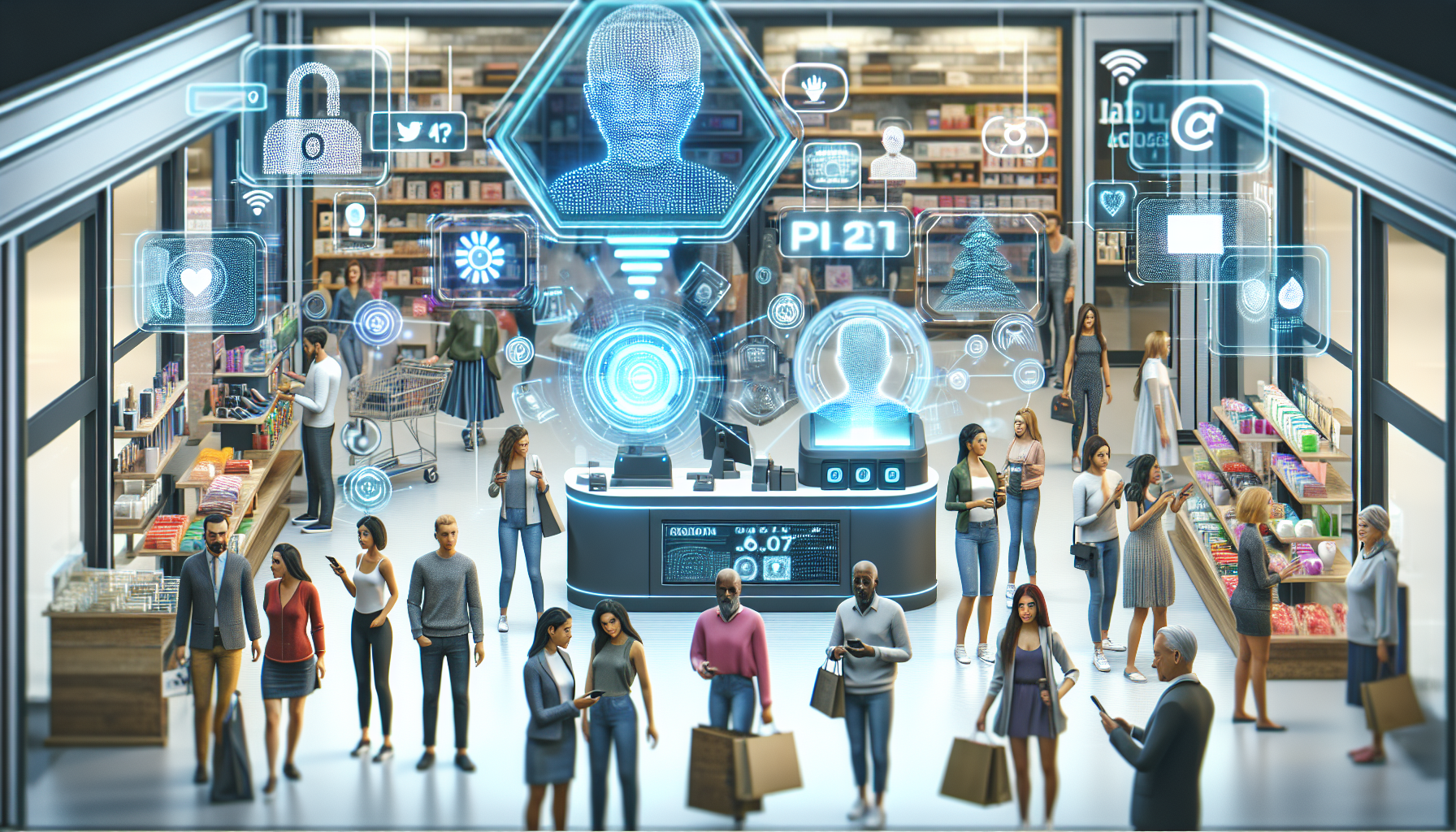The Role of Personalization in Retail Through AI
Artificial intelligence is revolutionizing the retail sector through the ability to analyze vast amounts of consumer data. One of the most significant impacts of AI in retail is the customization of the shopping experience. Brands can now use AI algorithms to analyze consumer behavior, preferences, and spending patterns. This enables retailers to create personalized recommendations, tailor email marketing campaigns, and adjust inventory to meet specific customer demands. For instance, platforms like Amazon and Netflix utilize advanced algorithms to suggest products and content, enhancing customer satisfaction and loyalty.
Enhanced Customer Service with AI Chatbots
AI chatbots are increasingly becoming integral to customer service in retail. They are available 24/7, providing instant assistance to customers regarding queries, product information, and order tracking. According to a report from IBM, businesses can reduce customer service costs by up to 30% through the adoption of AI chatbots. These intelligent systems can handle multiple inquiries simultaneously, significantly improving response time and customer experience. Chatbots utilize natural language processing (NLP) to understand and respond to customer requests, offering a degree of personalization that traditional methods struggle to achieve.
Inventory Management and Demand Forecasting
AI is also making waves in inventory management, addressing the perennial challenge of supply chain optimization. Machine learning algorithms analyze past sales data, seasonal trends, and external factors to predict future demand accurately. Retailers can accurately forecast which products are likely to sell and in what quantities. This predictive analytics capability minimizes overstock and stockouts, leading to reduced costs and enhanced customer satisfaction.
For example, major retailers like Walmart employ AI technology to streamline their inventory processes, ensuring shelves are stocked with what customers want, resulting in increased sales and fewer customer complaints.
AI-Powered Visual Search Technology
Visual search technology powered by AI is transforming how customers find products. Instead of using text search queries, consumers can upload images to locate similar products. This is particularly valuable in the fashion and home decor sectors, where aesthetic appeal plays a significant role in purchasing decisions. When customers can easily find what they are looking for with just a picture, the likelihood of conversion increases significantly. IKEA and ASOS are examples of brands that utilize visual search to enhance the consumer shopping experience.
Augmented Reality (AR) and Virtual Try-Ons
Augmented reality, when combined with AI technology, is reshaping the retail landscape by allowing consumers to interact more meaningfully with products before purchase. AR applications can enable virtual try-ons for clothing and makeup, offering a realistic view of how products will appear in real life. Brands like Sephora and Warby Parker make effective use of AR to allow users to “try before they buy,” thereby reducing return rates and boosting customer confidence in their purchasing decisions.
Reduced Fraud and Enhanced Security
The integration of AI in retail also extends to security measures. AI technologies can analyze transactions in real-time, identifying irregular patterns that may indicate fraud. Machine learning models can evaluate numerous variables, including transaction history and user behavior, to detect potentially fraudulent activity. Retailers benefit from enhanced security protocols that protect customer information and mitigate financial losses associated with fraudulent transactions.
AI in Customer Feedback Analysis
The importance of customer feedback in shaping retail strategies cannot be overstated. AI-driven sentiment analysis can dissect reviews, social media comments, and survey data to gauge consumer perceptions efficiently. This valuable insight helps businesses understand their strengths and weaknesses and identify areas for improvement. As a result, brands can adapt quickly to shifting consumer preferences and market trends, improving their overall strategy and enhancing customer loyalty over time.
Dynamic Pricing Strategies
Dynamic pricing powered by AI is another game-changer for the retail sector. AI can analyze market conditions, competitor pricing, and customer demand to adjust prices in real-time. Retailers can optimize their pricing strategies to maximize profit margins while remaining competitive. For example, airlines and ride-sharing companies have successfully employed dynamic pricing to adjust their fare structures based on real-time demand fluctuations.
The Influence of AI on Marketing Strategies
AI has transformed retail marketing strategies, allowing for deeper engagement through targeted advertising. By analyzing customer data, AI can segment audiences and tailor marketing messages that speak directly to customers’ needs. Relative to previous marketing methods, promotional campaigns driven by AI deliver higher conversion rates and ROI. Brands can use AI to conduct A/B testing, analyze marketing effectiveness, and optimize budgets in real-time.
Ethical Considerations and Challenges of AI in Retail
While the advantages of AI in retail are numerous, they also raise ethical concerns. The reliance on consumer data means that retailers must be transparent about how they use this information to foster trust among customers. Data privacy regulations such as the GDPR in Europe impose additional responsibilities on businesses to protect customer data. Retailers must navigate these challenges while leveraging AI to ensure that consumer rights are respected.
The Future of Retail with AI Technology
The retail landscape continues to evolve with rapid advancements in AI. As technology grows more sophisticated, retailers can expect even greater levels of automation, enhanced personalization, and deeper insights into consumer behavior. Future AI applications may incorporate elements such as voice search, behavioral targeting, and even full-scale autonomous retail experiences. Retailers need to adapt to these changes proactively in order to stay relevant in an increasingly competitive market.
Conclusion
The impact of AI on the retail industry is profound and far-reaching. From enhancing customer experience to optimizing operations, AI technology is reshaping how businesses interact with consumers. Retailers who embrace these advancements stand to gain a competitive edge in a landscape where consumer expectations are skyrocketing.


